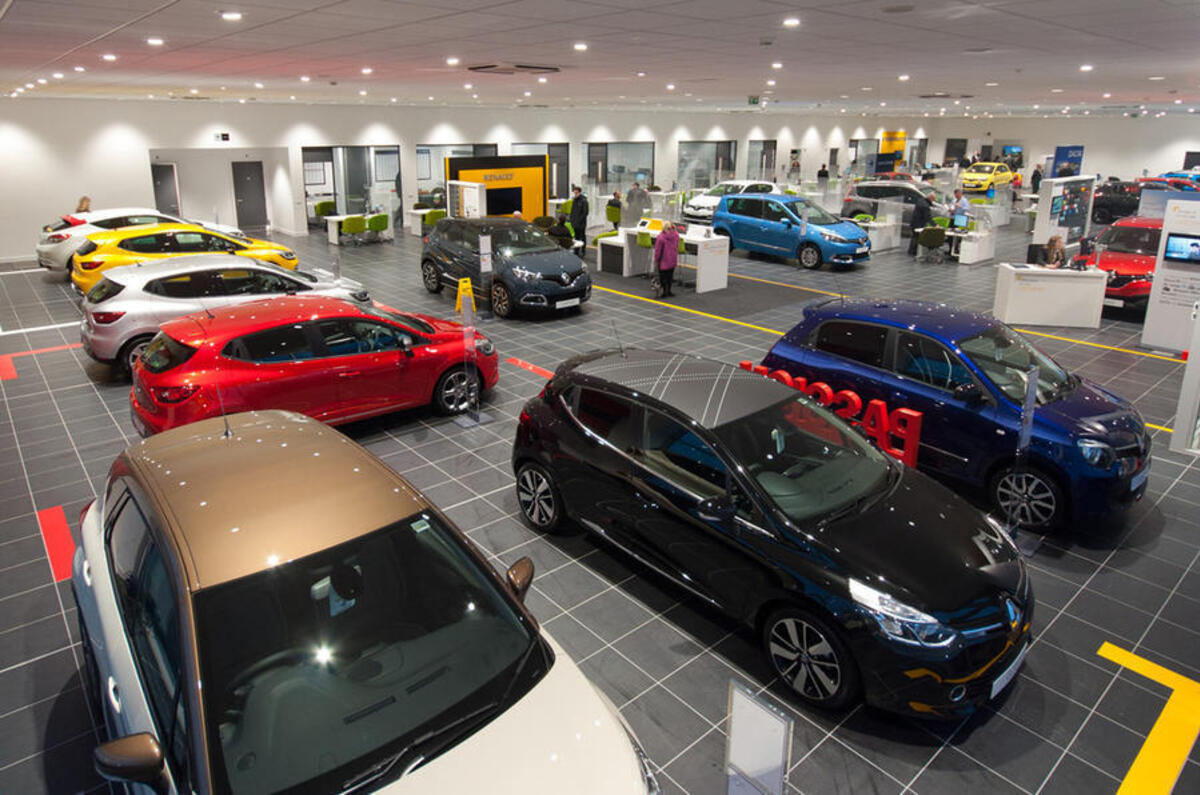UK car registrations fell almost 7% year-on-year to 2.37m units in 2018, with a near 30% drop in diesel registrations accounting for the most marked decline in the market.
Despite the drop - down from a 21st century peak of 2.69m in 2016 - the number of registrations is still in line with the UK’s 10-year sales average, and maintains the UK’s position as the second largest new car market in Europe, behind Germany.
Read more: The 2018 car market winners and losers in detail
December’s figures confirmed diesel registrations have now fallen for 21 consecutive months; by contrast, petrol registrations rose 8.7% for the year, while plug-in hybrid and electric registrations rose 20.9%.
Underlining the impact of the diesel collapse, the 30% fall on registrations in 2018 compared to 2017 equates to 316,000 registrations - more than the drop in total 2018 registrations from the 2017 figure of 2.54m.
Society of Motor Manufacturers and Traders (SMMT) boss Mike Hawes also highlighted other factors that impacted the UK car market, including falling consumer confidence in big ticket purchases as a result of economic uncertainty, issues arising from the Brexit negotiations and the supply shortage in the wake of WLTP economy certification, which lowered some manufacturers’ registrations by almost 50% in September.
“The belief is that consistent messaging and ongoing demonstration of the benefits of the latest diesels could unlock some of the market,” said Hawes. “The evidence is clear: some diesel owners are holding on to their cars rather than replacing them, and if we can bring the facts home to them, then we would hope they will replace them with confidence.”
Large fleet purchases accounted for the greatest drop in registrations, falling 7.1%, followed by private retail purchases, down 6.4% and business purchases, down 5.6%. The most robust sector was the light commercial market, which fell just 1.3%.
Rising CO2 average raises concerns
Hawes also stressed the impact of the decline in diesel sales on CO2 output. Diesel engines typically produce significantly less CO2 than petrol engines, but more NOx and particulates.
The average CO2 output of a car sold in 2018 rose 2.9g/km compared to 2017’s figure, to 124.5g/km. This figure was also impacted by the rise in sales of less efficient vehicles, notably SUVs, and the shift to WLTP measurement techniques, which added around 5% to a car’s official CO2 output.
Under EU law car manufacturers must hit a 95g/km fleet average by 2021, based on European sales, or face fines of 95 euros per gram per kilometre per car.
Hawes described the situation as “increasingly worrying”, with potential fines based on the current situation reaching hundreds of millions of euros for some car makers. To hit the target car makes must now achieve an average reduction of 8.6% a year - when the target was set of the average reduction needed was 4% a year.
While UK sales are unlikely to count towards the EU averages post-Brexit, the British government has already indicated that it will either mirror the EU rules or impose tougher targets in the event of Brexit being completed by that date.




Join the debate
Add your comment
the UK car registration will
the UK car registration will cover a vast area across the country.The modern technology is improving day by day at a rapid pace.All the marketing strategies are changing accordingly across the globe.The custom writing is helping the investors to get their business content for publishing.
McLaren (giving people the
McLaren (giving people the cars their customers want) sales up 44%!!! Build it, and they will come. Suzuki are doing ok with their new Jimny (demand outstripping supply), and plenty of others, too. As usual, companies who are 'in trouble' have only themselves to blame, not politics.
Increased SUV sales driving rising CO2 emissions
Great that the SMMT has finally admitted that the increase in SUV sales is at least partly the cause of rising CO2 levels. It was always bending the truth to say that it was all to do with the switch away from diesel.
But given that Euro 6 diesels will likely be banned from entering some German cities, it may be too optimistic of Mike Hawes to encourage people to keep buying diesels. Other European and UK cities could follow where Germany leads, damaging diesel resale values further.
The real problem highlighted by the SMMT today is that the UK is lagging behind the rest of the EU for uptake of electric vehicles. That is a really poor performance, especially when you consider that Norway, the EV leader, isn't even in the EU, so isn't counted in those stats. We are a nation of innovation and invention, why are we so slow to go electric?